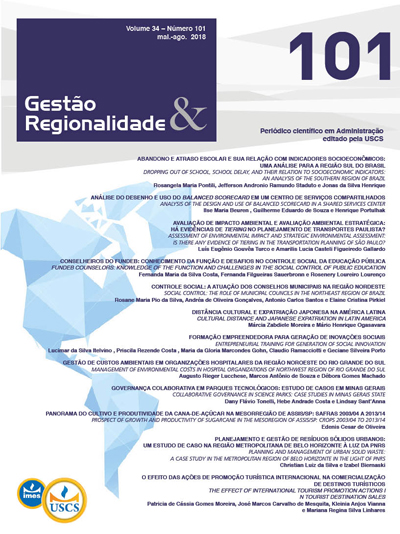COLLABORATIVE GOVERNANCE IN SCIENCE PARKS: CASE STUDIES IN MINAS GERAIS STATE
DOI:
https://doi.org/10.13037/gr.vol34n101.3866Abstract
The aim was to understand how Collaborative Governance (CG) manifests in science parks (SPs) based on the Ansell and Gash (2008) model. This model consists of five theoretical constructs: (i) face-to-face dialogue; (ii) building trust; (iii) commitment to the process; (iv) shared understanding; and (v) intermediate results. Based on these constructs, case studies were performed in two SPs: the first in the implementation stage, and the second in operating stage. The data gathered, in form of transcribed interviews, documents, and observation notes, were subjected to content analysis. The results demonstrated that although some precepts of CG were manifested in both SPs investigated, there was an absence of key elements of CG, such as the formal collaboration spaces and the inclusive decision-making processes. At the same time, in the view of respondents, the constructs of CG are considered important to the success of the projects.
Keywords: Collaborative process; regional development; social actors; science parks.
Downloads
Downloads
Published
How to Cite
Issue
Section
License
Autores que publicam nesta revista concordam com os seguintes termos:
- Autores mantém os direitos autorais e concedem à revista o direito de primeira publicação, com o trabalho simultaneamente licenciado sob a https://creativecommons.org/
licenses/by-nc-nd/4.0/ , permitindo o compartilhamento do trabalho com reconhecimento da autoria do trabalho e publicação inicial nesta revista. - Autores têm autorização para assumir contratos adicionais separadamente, para distribuição não-exclusiva da versão do trabalho publicada nesta revista (ex.: publicar em repositório institucional ou como capítulo de livro), com reconhecimento de autoria e publicação inicial nesta revista.
- Autores têm permissão e são estimulados a publicar e distribuir seu trabalho online (ex.: em repositórios institucionais ou na sua página pessoal) a qualquer ponto antes ou durante o processo editorial, já que isso pode gerar alterações produtivas, bem como aumentar o impacto e a citação do trabalho publicado (Veja O Efeito do Acesso Livre).
























